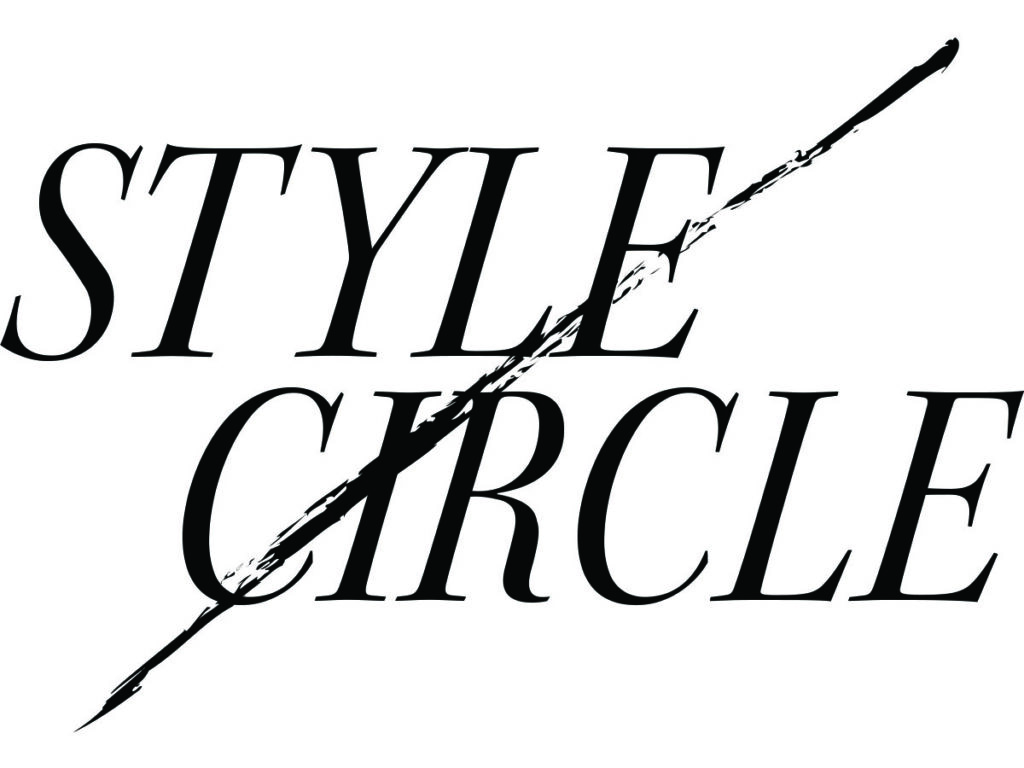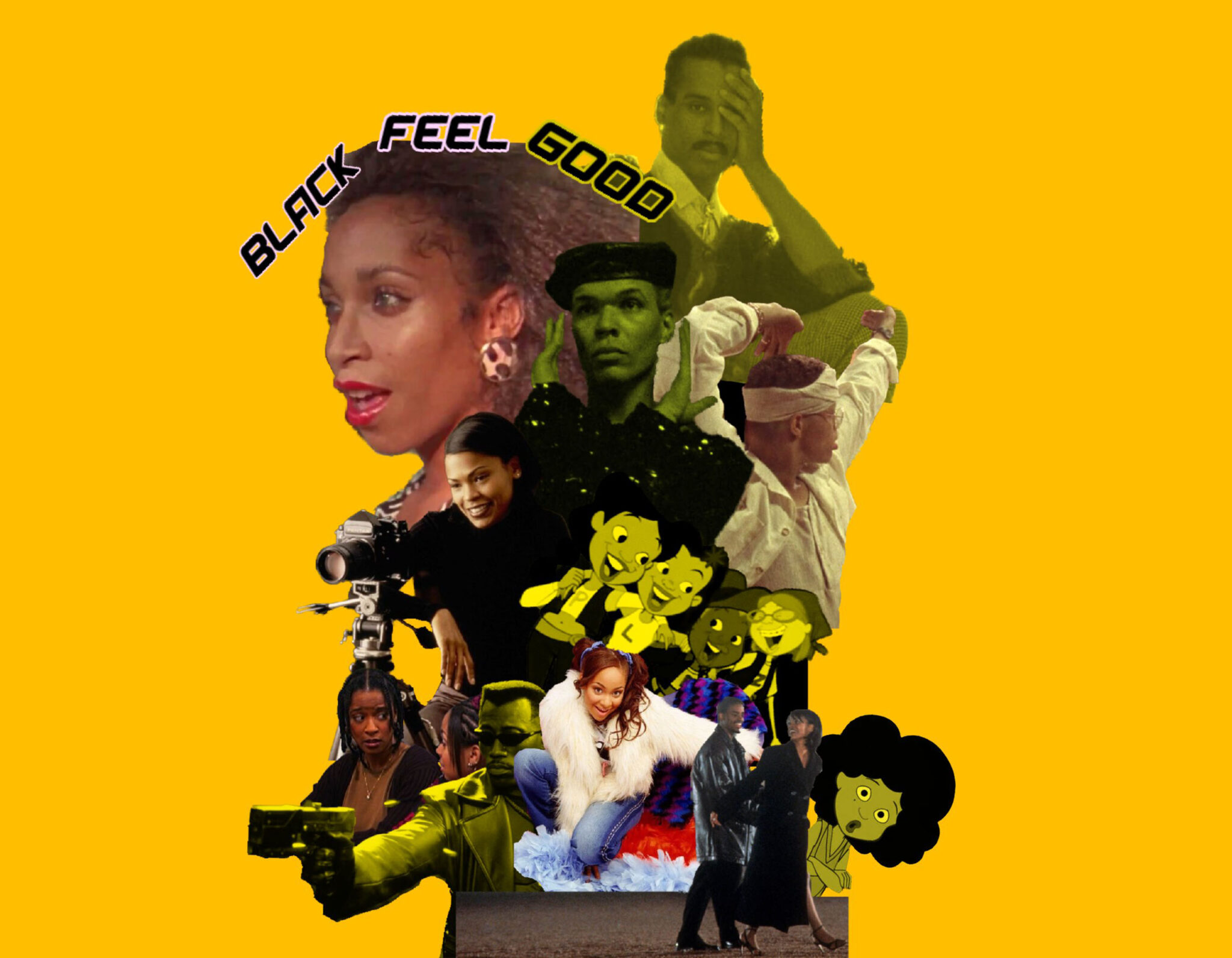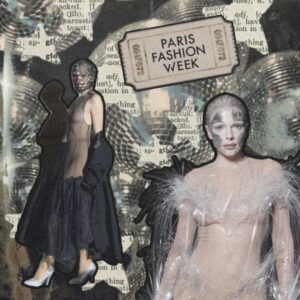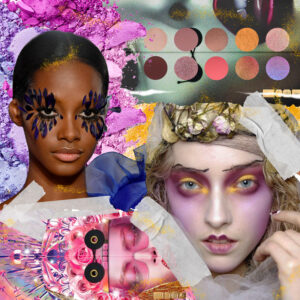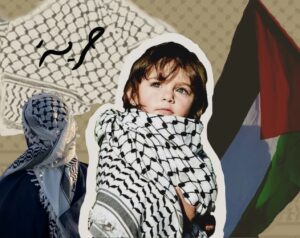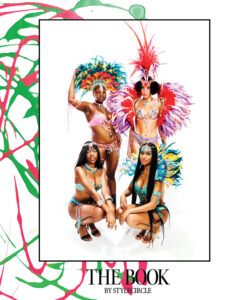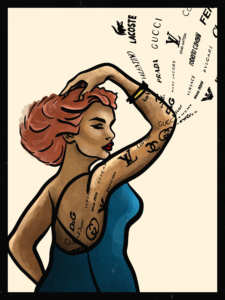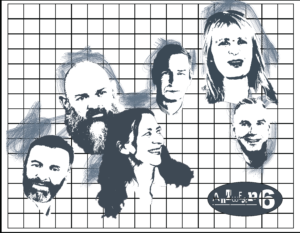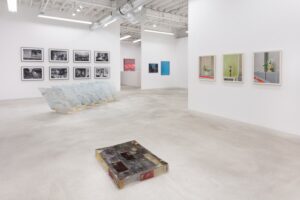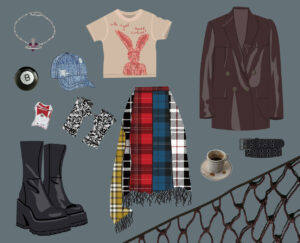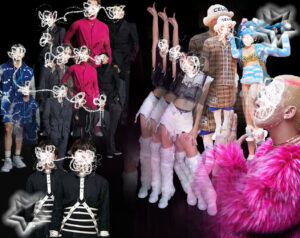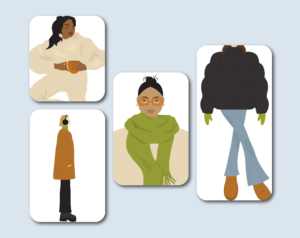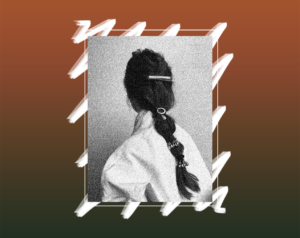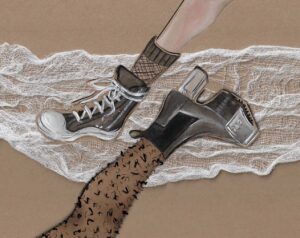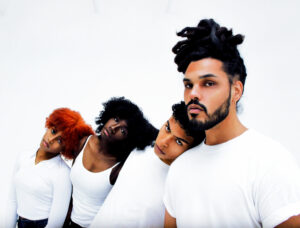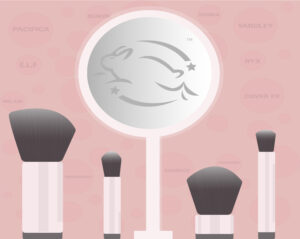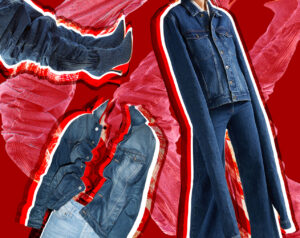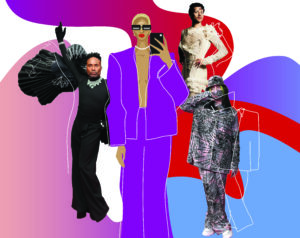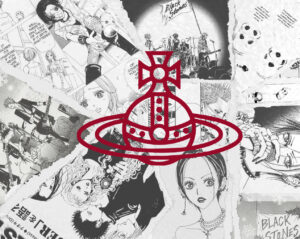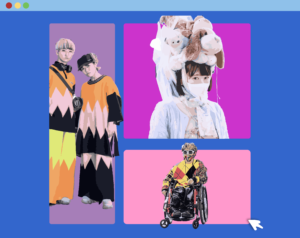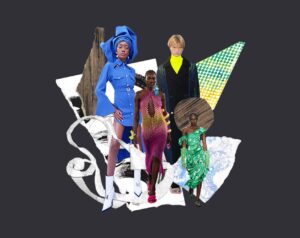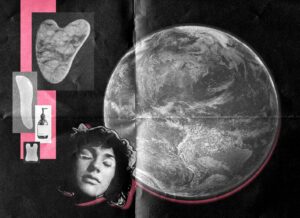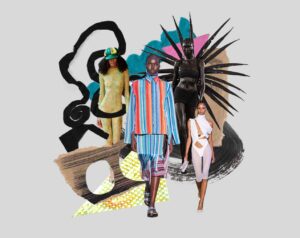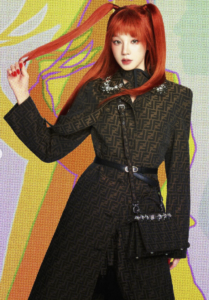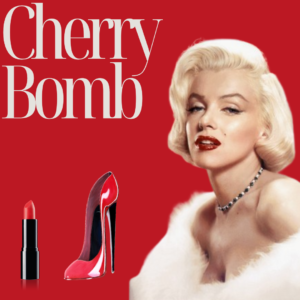COLLAGE Harrison Clarke
As current social unrest continues surrounding the murders of Black brothers and sisters, in both Canada and the United States respectively, Black folk have been faced with an overwhelming amount of images regarding Black death and suffering. Granted, the movement still has long strides to be made: Breonna Taylor’s murderers still walk free, the investigation of Regis Korchinski-Paquet’s death still rings hollow, and Police budgets such as Toronto’s tower over most social services within the city. This article is not meant to deter the current progress being made, or the important discourse and information sharing that is going around. It is meant to remind Black folx that we need to breathe. That reading about, and watching, our kin die is an emotionally taxing reality. Taking time to heal as a Black body is truly a revolutionary act in a society that sensationalizes Black death and brokenness. So here I am asking my Black kin to take a breath. Get off your phone early today, leave the email for tomorrow, and enjoy yourself.
Here is a quaint list of Black film and television that I personally dive into when I need a reminder of how much light there is in the Black body. By no means is this list extensive and by no means are these meant to be new and groundbreaking suggestions. Hopefully, these are shows that you used to watch and love, movies that bring a certain self-love and joy, or a show that removes the mind from an anxious spiral for an hour or two.
For my non-Black folx and non-Black POCs that want to join the Netflix party, please do. It is important for non-Black folk to be able to see Blackness in images other than suffering. Not every movie has to be 12 Years A Slave in order to communicate a ‘meaningful’ Black experience. Images of Black bodies simply being is important to break the cycle of romanticizing Black struggle, or acknowledging that Blackness comes in all forms.
Love Jones (Dir. by Theodore Witcher)
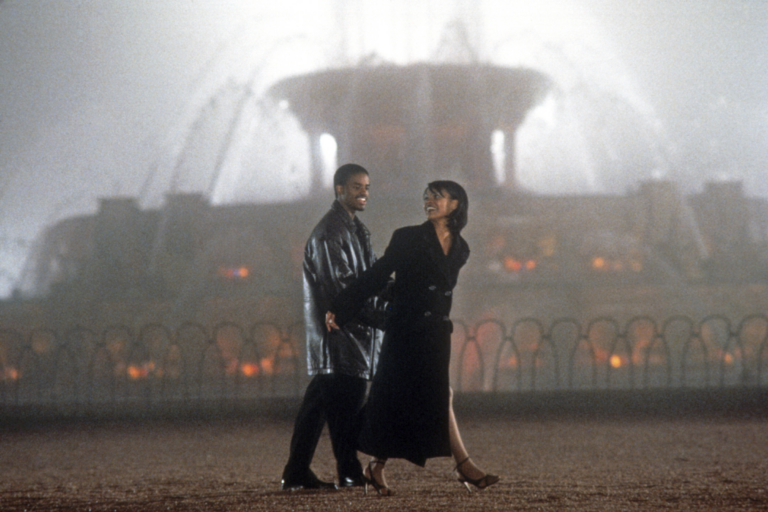
A personal favourite of mine, Love Jones is a late 90s rom-com that truly encompasses all straight Black rom-coms of the decade . The art kid angst is real in this film as Darius Lovejoy (yes, that is his name), beat poet and aspiring novelist runs into Nina Mosley, photographer, at a Slam event one evening. The rest is fairly straightforward, the pair navigates their relationship and deal with past romantic baggage. The movie also highlights the community that Nina and Darius have come to inhabit, portraying a close knit friend group and the late evolution of the beat poetry scene that swept through the U.S. from the Harlem Renaissance until the turn of the century. The cast is star studded with beautiful black celebrities, Nia Long plays Nina and Laurenz Tate plays Darius making one of the finest Black couples in cinematic history. Aside from the story, this movie deserves a watch for the brilliant score and soundtrack filled with artists from Duke Ellington to Lauryn Hill.
Proud Family (Dir by Bruce W. Smith)
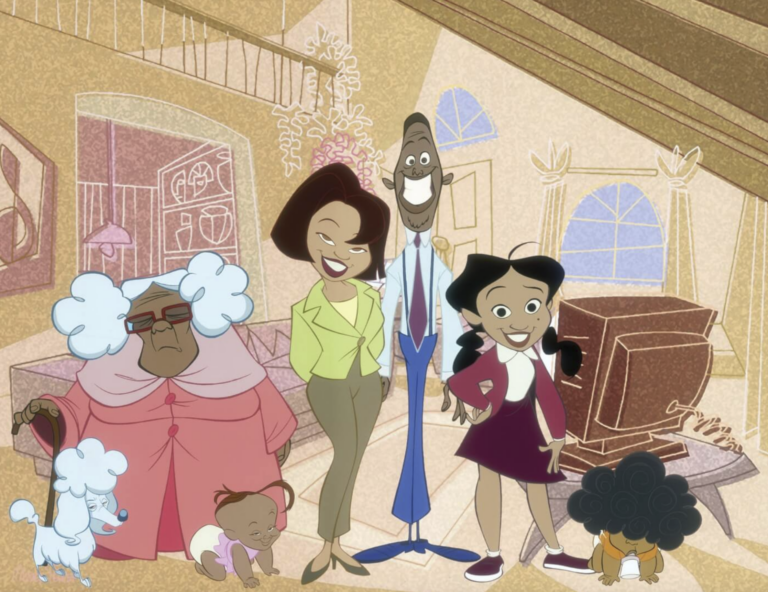
Let’s be real, how long has it been since you’ve watched Proud Family? One of the only animated series targeted for kids and teens that focuses on a Black American family. Penny Proud lives in a multi-generational Black household, dealing with her reality as a junior-high student, and her loud, crowded home. The show handles the Proud’s Blackness unapologetically, the family celebrates Kwanzaa, Penny dreams herself into the civil rights movement of the 60s and jostles dates with a quasi-Black panther youth all in the first season. Penny’s surrounded by an iconic group of friends that pull her into issues of Anti-blackness within other communities of colour, allyship, and gender roles. The show covered a lot and its first two seasons are available on Disney+. If starting a show brings you stress in these times, watch the movie! The Proud Family Movie is a great offshoot to the show, and gives us the dance battle of the decade between Penny’s friends and the Islanders they run into.
That’s So Raven (Dir. by Rondell Sheridan)
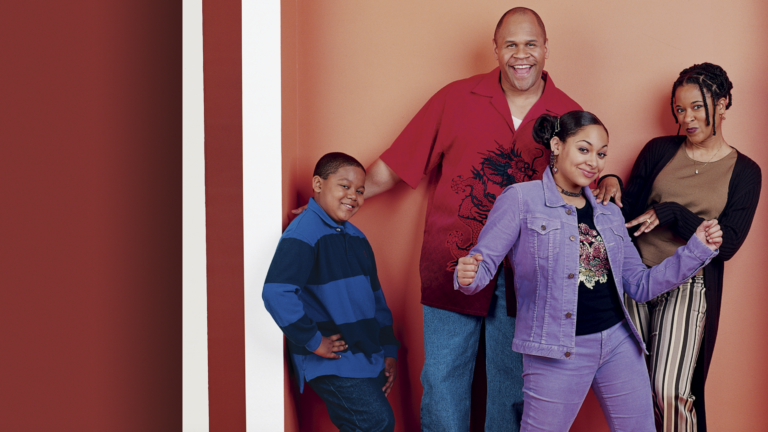
You want more wholesome Black family content? That’s So Raven is the best bet. Truly the show needs no introduction, but just in case: Raven-Symoné plays Raven a closeted teenage psychic, living in San Francisco with her family. There is honestly too much to say about the show. Raven constantly gives us ‘fit after ‘fit, her looks are some of the best parts of 00’s fashion. She navigates the school halls with her posse Eddy and Chelsea. Chelsea, an eco-conscious white liberal becomes a brilliant caricature of allies who solely learn directly from black folk. Raven and Eddy constantly keep Chelsea in check, whether it’s making sure she refrains from butchering Black vernacular, or overstepping cultural boundaries. Raven and Chelsea in turn keep Eddy’s hyper-masc sensibilities in check. As a constant, Raven is the sounding board for both of her friends. In a playful way illustrates the reality of the Black woman, caught in the crossroads of Black and Woman raven experiences all the intersectional hardships of her reality, yet still finds the energy to vouch and stand up for anyone she cares for. There is not enough space for all the things That’s So Raven does well, a personal favourite is “That’s So Not Raven” (S03 E08). Raven enters a fashion designer competition and is quickly faced with the all too real anti-blackness of the industry, and jostles with fat-shaming and body image throughout the episode.
Paris is Burning (Dir. by Jennie Livingston)
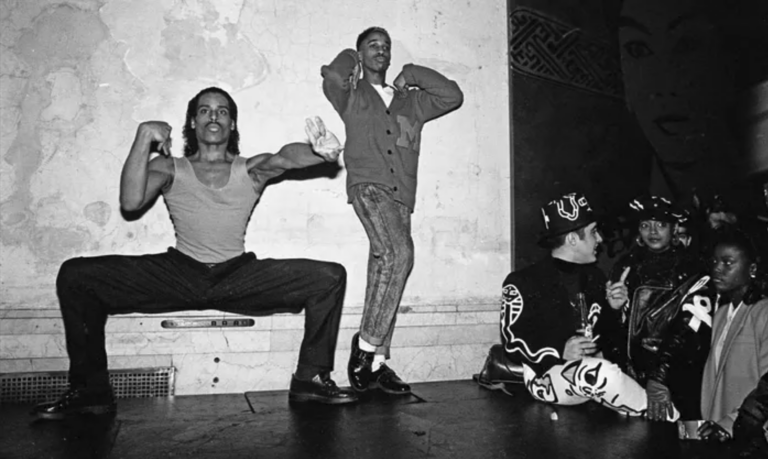
The 1990’s documentary illuminates the New York Ball scene of the late 1980s. The film highlights Back gay and trans legends of the New York scene like Willi Ninja, Pepper Labeija, Kim Pendavis, and Octavia Saint Laurent just to name a few. Livingston manages to acknowledge the severe and violent realities for gay and trans folk of the period, a reality that still permeates the societies we live in. Despite these injustices and violence, the film captures the light and community that Black and Brown bodies had to create for themselves and their kin down the line. The documentary also acts as an informative tool noting the language that originated from these ballrooms that are now cornerstones of the contemporary pop culture lexicon. As well as establishing a timeline of the rise of voguing into the mainstream. Paris is Burning can still be considered a difficult watch as it briefly touches on the murder of Venus Extravaganza so be wary if you are not up for it. Amidst this wicked world that triply oppresses Black LGBTQIA+ folk, the documentary portrays the revolutionary work of creating a space in which LGBTQIA+ folk can live, celebrate, and love. It is this act of fabricating community, from nothing or tattered somethings, that makes the coming together that much more beautiful, that much more powerful.
Blade (Dir. by Stephen Norrington)
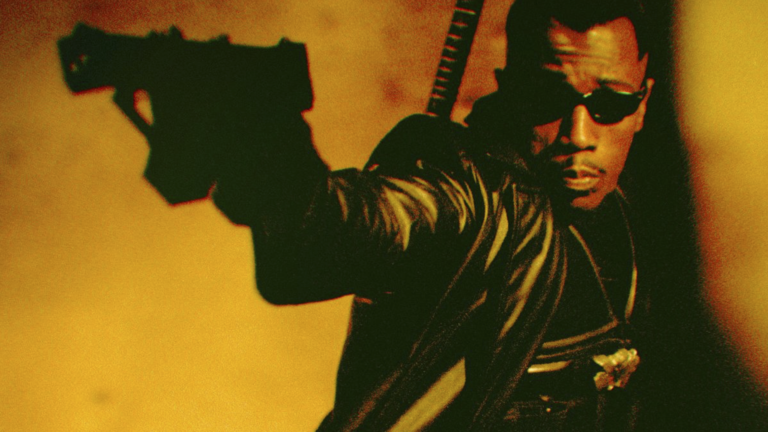
Blade’s sci-fi vampire thriller is a change of pace from the former recommendation. Although directed by a White man, and not rooted in a Black community, Blade is on this list for its contribution to the Afro-punk aesthetic. Wesley Snipes plays a vampire slayer, adorned in steel eyelet boots, black leather pants, vest and trench coat that makes the mouth water. The plot is rather straight forward, positioning Blade in a constant battle with an antiquated council Vampires, it carries subtle undertones of Black man against the world vibes. If you aren’t one for gore, and needles or teeth near the neck area maybe sit this one out. However, if hack and slash is your thing, this is right in your valley. There isn’t much more to say on Blade, other than if you watch the first one, you might as well finish the trilogy.
